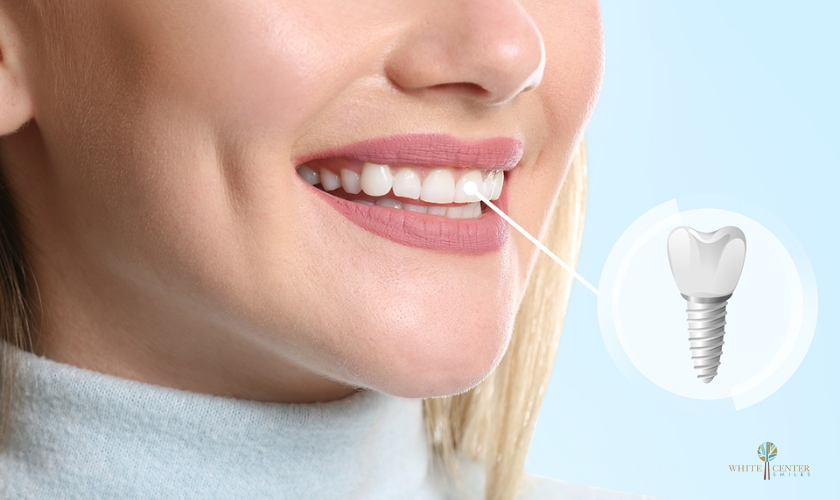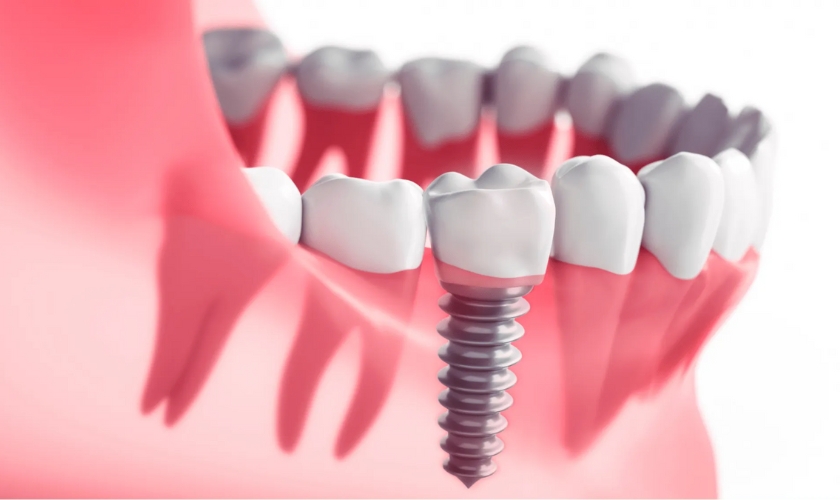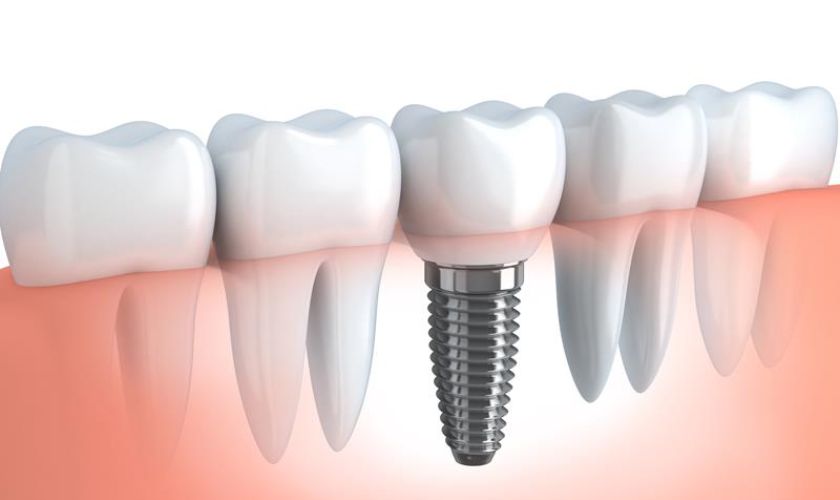New Patients Welcome!

Dental implants have revolutionized the field of dentistry, providing a long-term solution for individuals with missing teeth. Unlike traditional dentures or bridges, dental implants are surgically implanted into the jawbone, providing a stable and durable foundation for replacement teeth. While dental implants offer numerous benefits, including improved aesthetics, function, and oral health, many patients have questions about their dietary restrictions and whether they can eat certain foods with implants. In this comprehensive guide, we’ll explore the topic of eating with dental implants, including the types of foods that are safe to eat, potential dietary considerations, and tips for maintaining oral health and longevity with implants.
Understanding Dental Implants and Their Benefits:
Before delving into the topic of eating with dental implants, it’s essential to understand what dental implants are and how they work. Dental implants are titanium posts that are surgically placed into the jawbone to serve as artificial tooth roots. Once the implants have integrated with the surrounding bone tissue, they provide a stable and durable foundation for replacement teeth, such as crowns, bridges, or dentures.
Some of the key benefits of dental implants include:
- Improved Stability and Function: Dental implants are securely anchored in the jawbone, providing stability and support for replacement teeth. This allows patients to eat, speak, and smile with confidence, without worrying about their prosthetic teeth shifting or slipping out of place.
- Natural Appearance: Dental implants closely mimic the look and feel of natural teeth, enhancing the aesthetics of the smile and restoring facial contours. The custom-designed replacement teeth are color-matched to blend seamlessly with the patient’s existing teeth, creating a natural and lifelike appearance.
- Preservation of Jawbone Health: Dental implants help preserve jawbone health by stimulating bone growth and preventing bone loss that can occur following tooth loss. This helps maintain facial structure and prevents the sunken appearance that can result from missing teeth.
- Long-Term Solution: With proper care and maintenance, dental implants can last a lifetime, making them a durable and cost-effective solution for tooth replacement.
Can You Eat Any Foods with Dental Implants?
One of the most common questions patients have about dental implants is whether they can eat any foods with implants. The good news is that dental implants are designed to function like natural teeth, allowing patients to enjoy a wide variety of foods with confidence. However, there are some dietary considerations and precautions to keep in mind to protect the longevity and integrity of dental implants.
Foods That Are Safe to Eat with Dental Implants:
- Soft Foods: In the initial stages of healing after implant surgery, it’s essential to stick to soft foods that are easy to chew and swallow. This includes foods such as yogurt, mashed potatoes, scrambled eggs, and smoothies.
- Cooked Vegetables: Cooked vegetables are an excellent choice for individuals with dental implants, as they are soft and easy to chew. Steamed or boiled vegetables such as carrots, broccoli, and cauliflower can be enjoyed without placing undue stress on the implants.
- Lean Proteins: Lean proteins such as chicken, fish, tofu, and legumes are nutritious options that are easy to chew and digest. Avoid tough or fibrous cuts of meat that may be difficult to chew, especially in the early stages of implant healing.
- Dairy Products: Dairy products such as cheese, yogurt, and milk are rich in calcium and protein, which are essential for maintaining strong and healthy teeth and bones. These foods are also soft and easy to chew, making them suitable for individuals with dental implants.
- Soft Fruits: Soft fruits such as bananas, berries, and ripe melons are gentle on the teeth and gums and can be enjoyed with dental implants. Avoid hard or crunchy fruits such as apples and pears, which may put undue pressure on the implants.
- Grains and Legumes: Cooked grains such as rice, quinoa, and couscous, as well as legumes such as lentils and beans, are nutritious options that are easy to chew and digest. Incorporate these foods into your diet for added fiber and protein.
Precautions and Dietary Considerations:
While dental implants allow for a wide range of dietary flexibility, there are some precautions and dietary considerations to keep in mind to protect the integrity of the implants:
- Avoid Hard or Crunchy Foods: Hard or crunchy foods such as nuts, seeds, popcorn, and hard candies can place excessive stress on dental implants and may increase the risk of implant failure or damage. It’s best to avoid these foods or consume them in moderation.
- Limit Sticky or Chewy Foods: Sticky or chewy foods such as caramel, taffy, and chewing gum can adhere to dental implants and may be difficult to remove, increasing the risk of plaque buildup and gum disease. Exercise caution when consuming these foods and be sure to clean your teeth thoroughly afterward.
- Be Mindful of Temperature: Extreme temperatures, such as very hot or very cold foods and beverages, can cause discomfort for individuals with dental implants, particularly in the early stages of healing. Be mindful of the temperature of your food and drink choices to avoid sensitivity or discomfort.
- Practice Good Oral Hygiene: Proper oral hygiene is essential for maintaining the health and longevity of dental implants. Brush your teeth twice a day with a soft-bristled toothbrush and fluoride toothpaste, floss daily, and visit your dentist regularly for check-ups and cleanings.
- Avoid Smoking and Excessive Alcohol Consumption: Smoking and excessive alcohol consumption can have detrimental effects on oral health and may increase the risk of complications with dental implants. Quit smoking and limit alcohol intake to promote optimal healing and implant success.
Enjoying a Balanced Diet with Dental Implants
In conclusion, dental implants offer a durable and long-term solution for individuals with missing teeth, allowing them to enjoy a wide variety of foods with confidence. While there are some precautions and dietary considerations to keep in mind, dental implants are designed to function like natural teeth, enabling patients to maintain a balanced and nutritious diet for optimal oral and overall health. By following these guidelines and practicing good oral hygiene, individuals with dental implants can enjoy a healthy and fulfilling diet while preserving the integrity and longevity of their implants for years to come. If you have any concerns or questions about eating with dental implants, be sure to consult with your dentist for personalized guidance and recommendations.
Looking For Dentist in the White Center, Washington
We are here to help you and support you with all of your oral health needs. If you think you could have dental problems call our Seattle Dentist office today. We are always happy to answer any questions you have .Schedule an appointment now.





